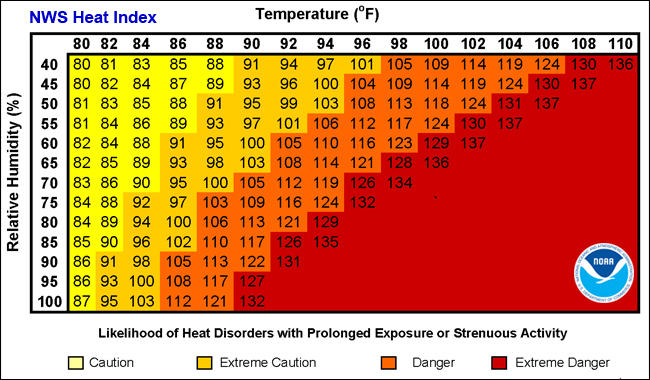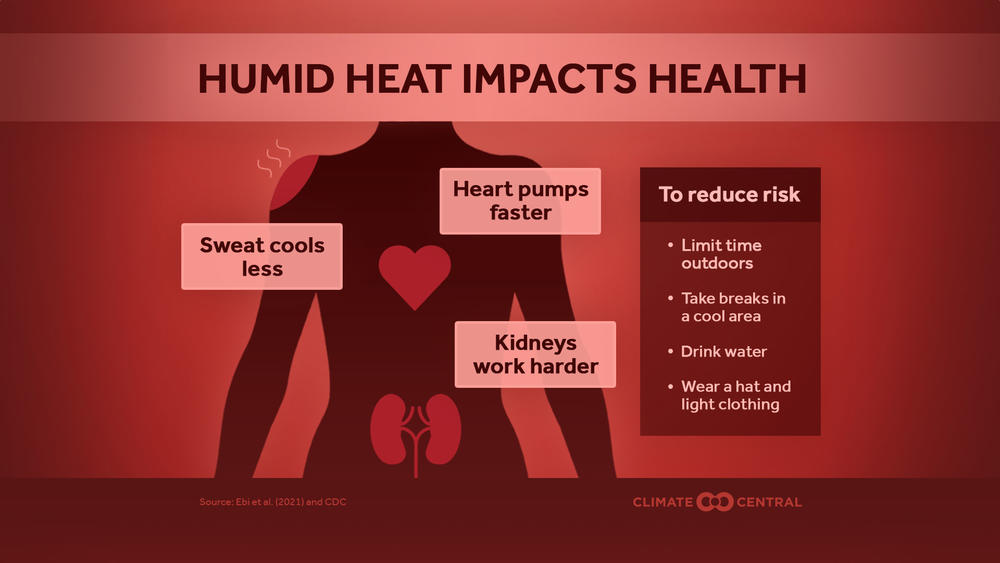
Caption
The National Weather Service Heat Index chart shows how heat and humidity combine to make deadly weather conditions.
Credit: National Weather Service

The National Weather Service Heat Index chart shows how heat and humidity combine to make deadly weather conditions.
Macon-born country music star Jason Aldean suffered heat exhaustion during a concert in Connecticut on Saturday night after high humidity and heat made performing impossible.
The singer, 46, said he felt better after a hospital visit, but his illness could happen to anyone, especially here in his home state of Georgia, where extreme heat is forecasted for the rest of this week.
The July 18 forecast for Atlanta is 97 degrees Fahrenheit. It's predicted to be 98 in Augusta and Albany. In Valdosta, it could reach 99 degrees. In Macon, the number is 100.
While temps in the 90s or even the low 100s are not unusual in Georgia (parts of our state reach triple digits a few days per year), extreme and excessive heat can occur when high temperatures combine with high humidity.
This is explained in the heat index, when one temperature "feels like" a higher number because of the humidity's effects on the human body.
Even if the heat is not in one of these danger zones, it can be dangerous at much lower temperatures, and elderly people are particularly vulnerable.
Because humidity can be localized, it's important to view your area's forecast to see if the heat is excessive — in the dark yellow, orange or red zones of the index.
For example, Savannah's predicted Tuesday forecast at 95 degrees, with 53% humidity, will feel like 107 degrees. Meanwhile, Atlanta, which could be two degrees warmer at 97 degrees, has a lower predicted humidity of 43%, making it feel like 105.
Calculate your region's heat index here.
Tornadoes and hurricanes claim lives, but heat kills more people and animals each year. Since 2018, heat deaths have outnumbered all other weather-related categories.
According to the Weather Channel, excessive heat claims over 150 lives in an average year in the U.S.

2023's heat indices are rising. Humid heat impacts health, especially for seniors or those with heart and kidney problems.
The Centers for Disease Control and Prevention recommends the following:
Know the signs of heat-related illnesses and ways to respond. If you are sick and need medical attention, contact your health care provider for advice and shelter in place if you can. If you are experiencing a medical emergency call 911.
Get more detailed information about heat-related illnesses from the CDC and National Weather Service.
Georgia Health Initiative is a non-partisan, private foundation advancing innovative ideas to help improve the health of Georgians. Learn more at georgiahealthinitiative.org